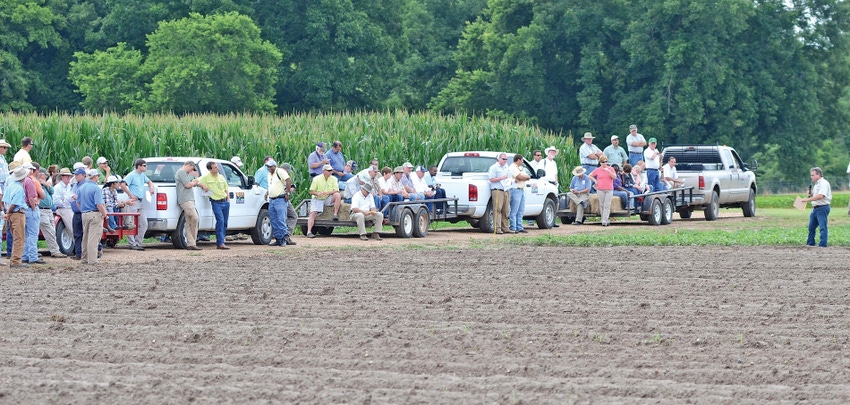June 27, 2013

With cooler temperatures that lingered into mid-May, Louisiana farmers observed a big problem with ryegrass, says Donnie Miller, research coordinator at the LSU AgCenter Northeast Research Station and a weed scientist. The weed is glyphosate-resistant and will slowly encroach into a field from ditch banks.
“Ryegrass is not like other resistant weeds, such as Palmer amaranth, that produce millions of seeds,” Miller says. “But, it can still produce around 70,000 seeds per plant," Miller told more than 150 farmers, agriculture consultants and industry representatives attending this year's annual field day at the research station at St. Joseph, La., June 19.
Resistant weeds changing the way we farm
“There are herbicides that prevent weed emergence such as Dual Magnum, Command and Treflan in the fall. In late winter, Select Max is effective in controlling emerged populations. In the spring, growers can use Paraquat. The best control for emerged plants occurs when applications are made prior to the 6-inch growth stage,” Miller said.
LSU AgCenter weed scientist Jim Griffin said using pre-emergent herbicides at planting is helpful in dealing with weeds that have become herbicide-resistant.
“These chemicals are applied to the soil surface, and rainfall moves them into the soil. As the weed seed germinates, it picks up the herbicide, which stops it from growing,” he said.
Ag news delivered daily to your inbox: Subscribe to Delta Farm Press Daily.
Griffin said although there are glyphosate-resistant weeds in Louisiana, the situation is still not as bad as in Arkansas, Georgia and Mississippi.
“Part of the reason for this is during the past five or six years, we have been educating growers on the problems of other states and the value of using residual-type herbicides at planting time,” Griffin said.
You might also read:
5 major trends pose threat to American farming
You May Also Like




